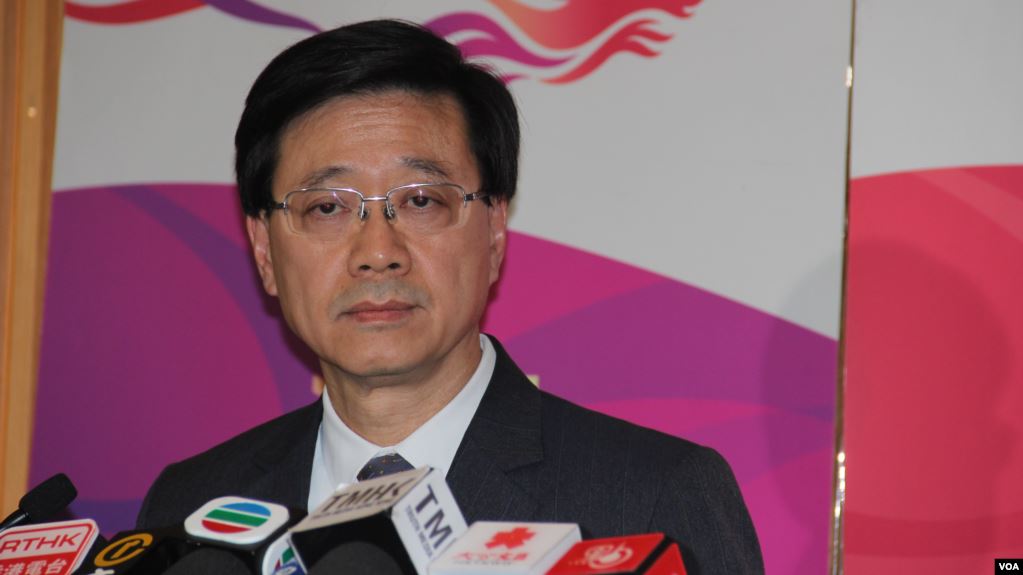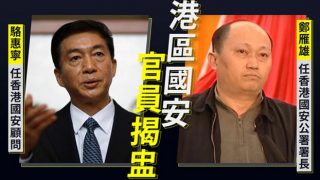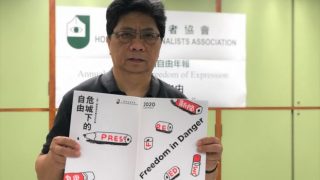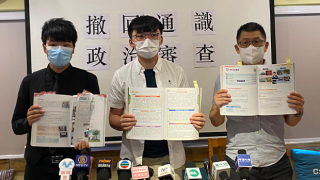
HONG KONG – Hong Kong’s legislature on Wednesday formally killed the extradition bill that sparked four months of anti-government protests — on the same day that the murder suspect at the center of this issue was released from jail in Hong Kong and said he plans to turn himself in to Taiwanese authorities.
But protesters and opposition legislators say this is a small concession, and won’t lead them to back down from their five demands of Hong Kong’s government.
Twenty-year-old Chan Tong-kai inadvertently set off four months of anti-government protests in his hometown, Hong Kong, when he violently killed his pregnant girlfriend in Taiwan last year. The semi-autonomous Chinese city cited his case, in February, in proposing legislation that would allow Hongkongers like Chan to be extradited to China for trial.
That lit a fire in this densely populated city, which since its handover from British rule back to China in 1997 was allowed by Beijing to operate under a “One Country, Two Systems” agreement. This proposed extradition bill, many residents felt, was a step too far towards Beijing.
And so the protests started in June, and violent clashes ensued between protesters and police. And the demands morphed into something much bigger than this piece of legislation. The city’s chief executive, Carrie Lam, suspended the bill in June, but the demonstrations continued, with protesters in this leaderless movement shaping five demands to their government. Those include universal suffrage, an investigation of police violence during the protests, amnesties for protesters and the full, official withdrawal of the extradition bill.
On Wednesday, they got one of those demands when members of the city’s Legislative Council officially withdrew the bill. But activist Leung Kwok Hung told VOA that it’s not enough.
“I think it’s too little and too late,” he said. “The five demands from the Hong Kong people should be dealt with. So Carrie Lam needs to tackle the rest of the demands, and she needs to deliver the leadership in order to make the whole community remember those things should not be done again, and she needs to deliver a roadmap and timetable to solve the problem of Hong Kong. I don’t think the Hong Kong people will stop protesting just because of this late and little concession.”
Immediately after the bill was formally withdrawn Wednesday afternoon, opposition lawmakers called on the city’s security secretary, John Lee, to resign. He did not reply to their calls.
Lawmaker Raymond Chan told VOA that he, too, would not ease up on his demands within the halls of the legislative body.
“It is not important,” he said. “We will still give pressure to Carrie Lam and the secretary and the government, force them to reply to the five main demands of the society.”
Chan, the murder suspect, has also inadvertently set off a turf war between Hong Kong and Taiwan. He indicated Wednesday that he would willingly surrender to Taipei, where he faces murder charges, but Taiwan’s leadership has asked Hong Kong to try him. They have refused, arguing that Taiwanese authorities have jurisdiction.
On Tuesday, Taiwan’s president, Tsai Ing-wen, lamented the situation.
“The Hong Kong government refuses to exercise its jurisdiction,” she said. “This leads to its own fellow victimized citizen failing to receive justice. If this happened in another country, and the Hong Kong government adopted this attitude, every country’s government would feel bothered.”
On Wednesday, as Chan emerged from prison in Hong Kong — where he served 19 months after being convicted for using his dead girlfriend’s credit cards — he looked meek and contrite. He stopped by the cameras, bowed deeply and said, softly, “to the society, and to Hongkongers, I can only say sorry.”
Source: Voice of America



